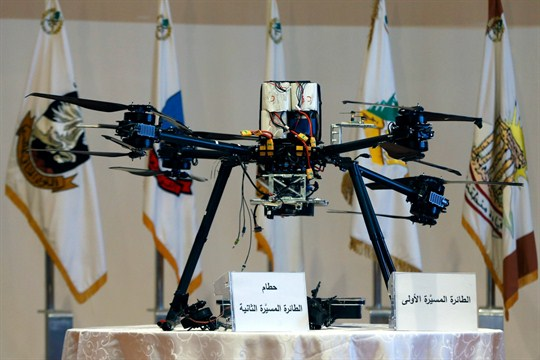The attack on oil facilities in Saudi Arabia last month cut the country’s oil production in half, leading to a 20 percent spike in the price of oil and exposing the surprising vulnerability of the Saudi oil industry, which is vital to the global energy supply. It was all apparently the work of a handful of drones and cruise missiles.
It was just the latest incident, but certainly the most high-stakes geopolitically, of what is usually referred to as “suspected drone activity.” Interruptions to commercial aircraft have become increasingly frequent, when planes must be diverted to another location because a drone has entered restricted airspace; sometimes, flights are suspended altogether. In December 2018, hundreds of flights were cancelled at London’s Gatwick airport because of reported drone sightings, which prompted the deployment of military equipment to investigate. In July 2017, a drone that could be bought online for a few hundred dollars almost collided with an F-22 fighter jet that cost more than a quarter of a billion dollars, despite the base and the airspace around it being designated a “no-drone area.”
 Eurasia Press & News
Eurasia Press & News



